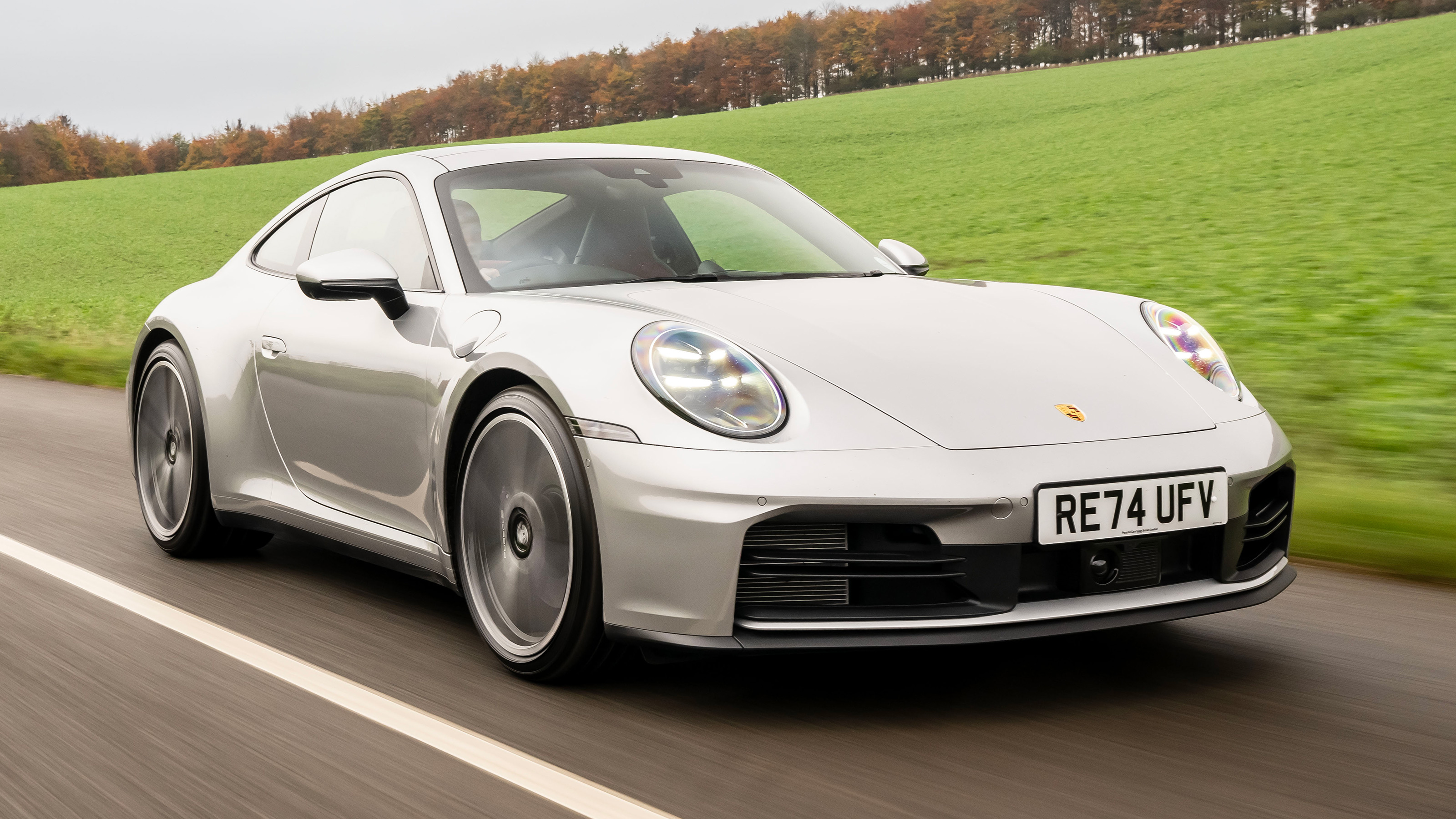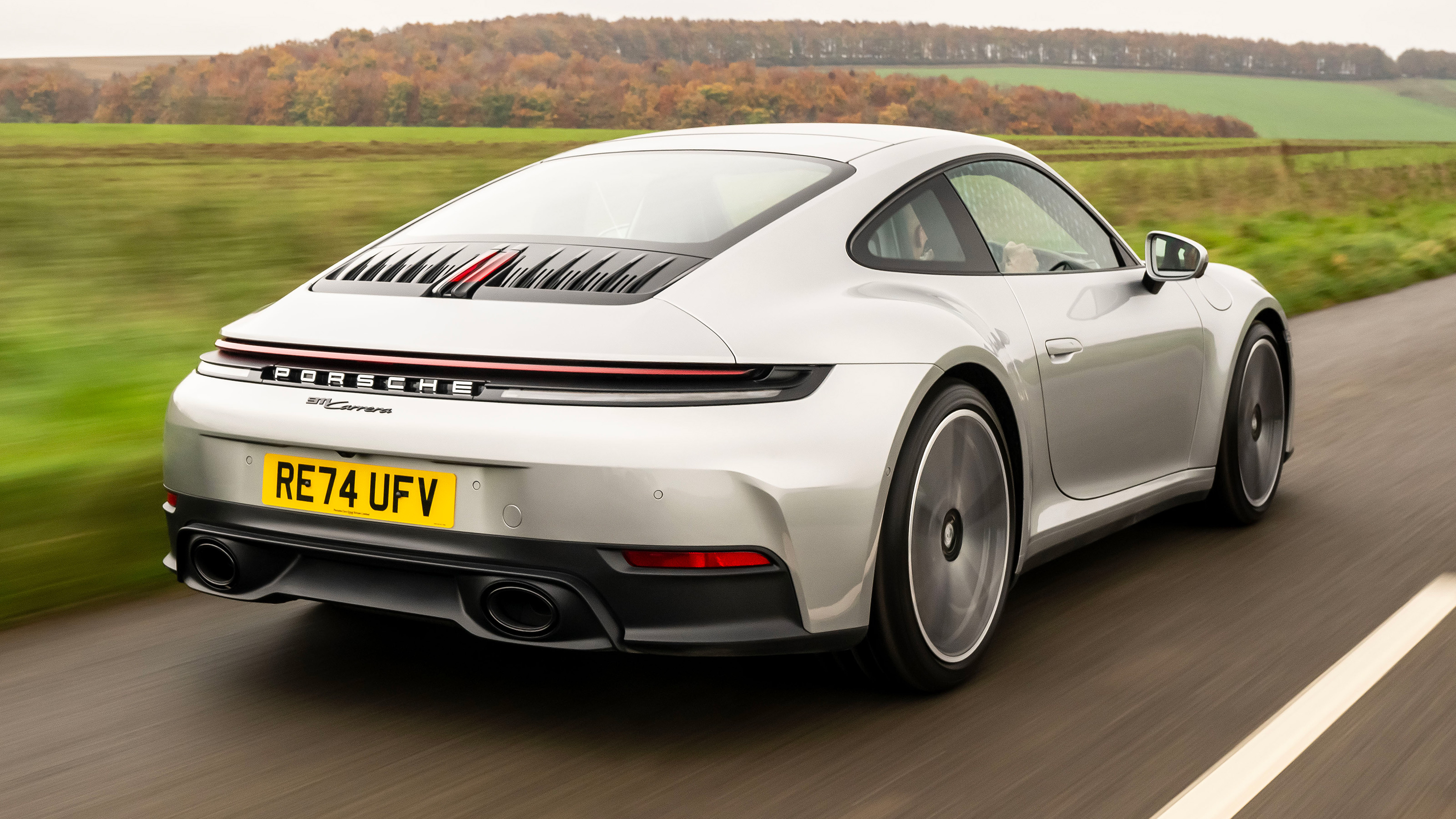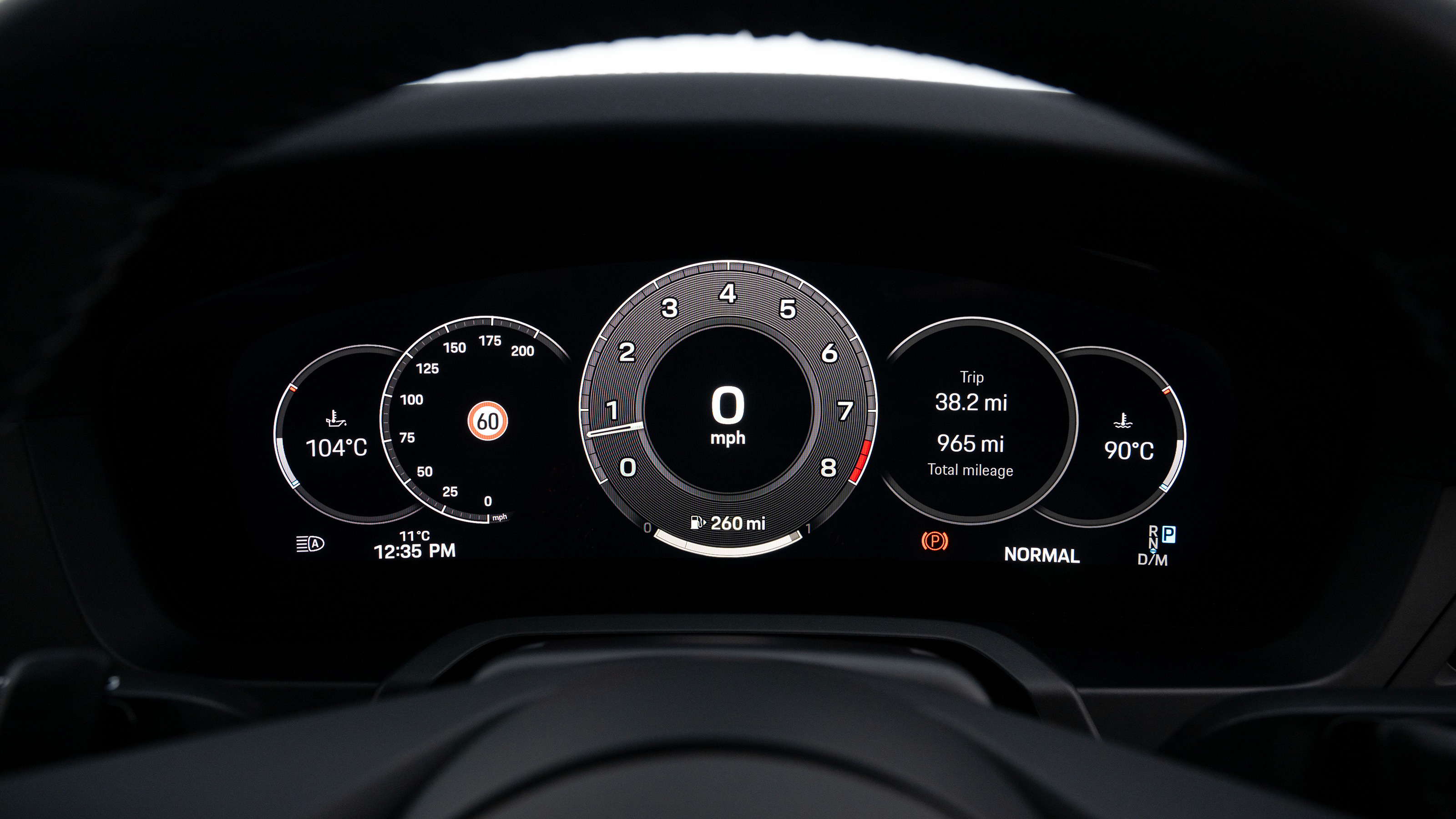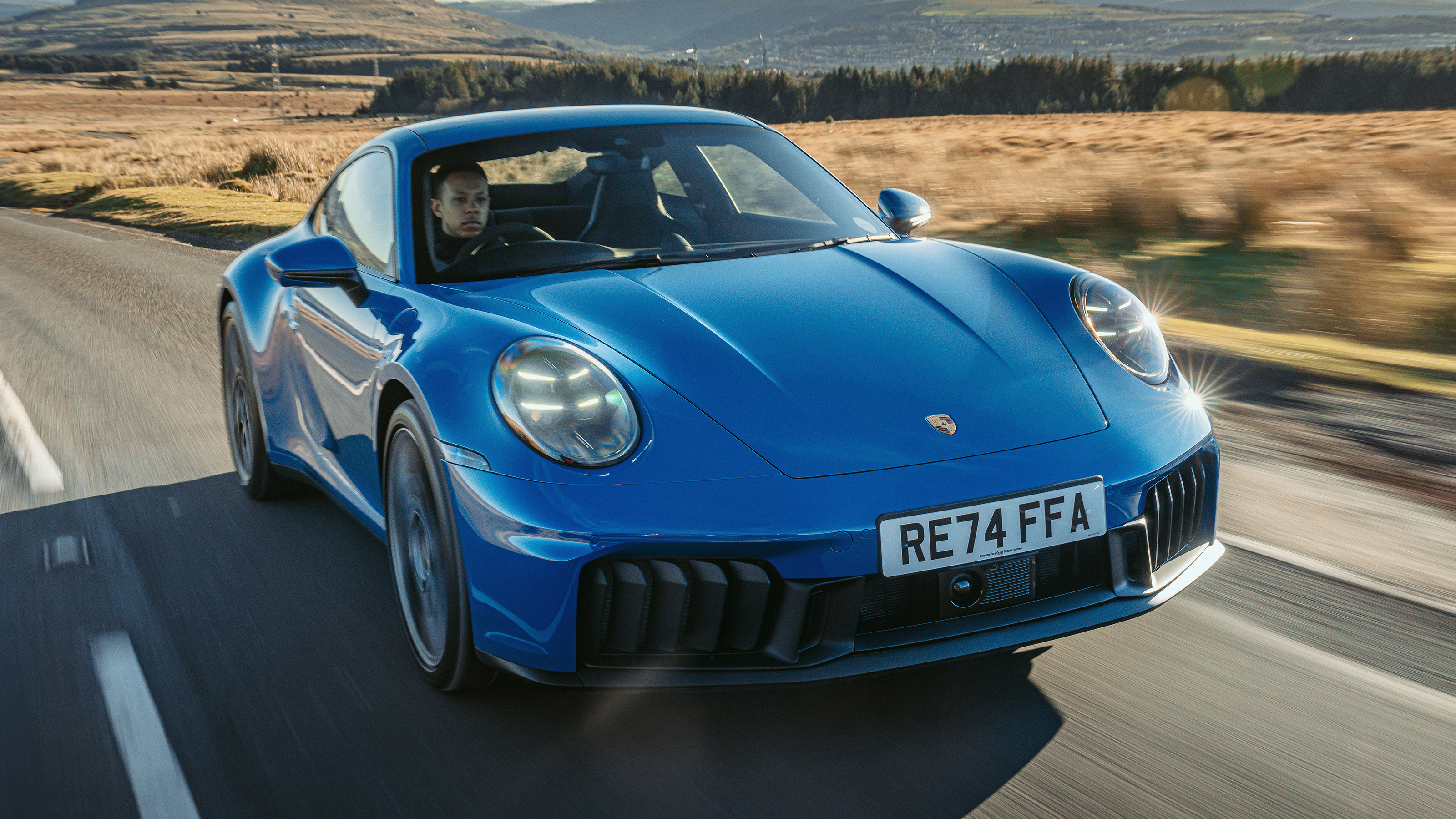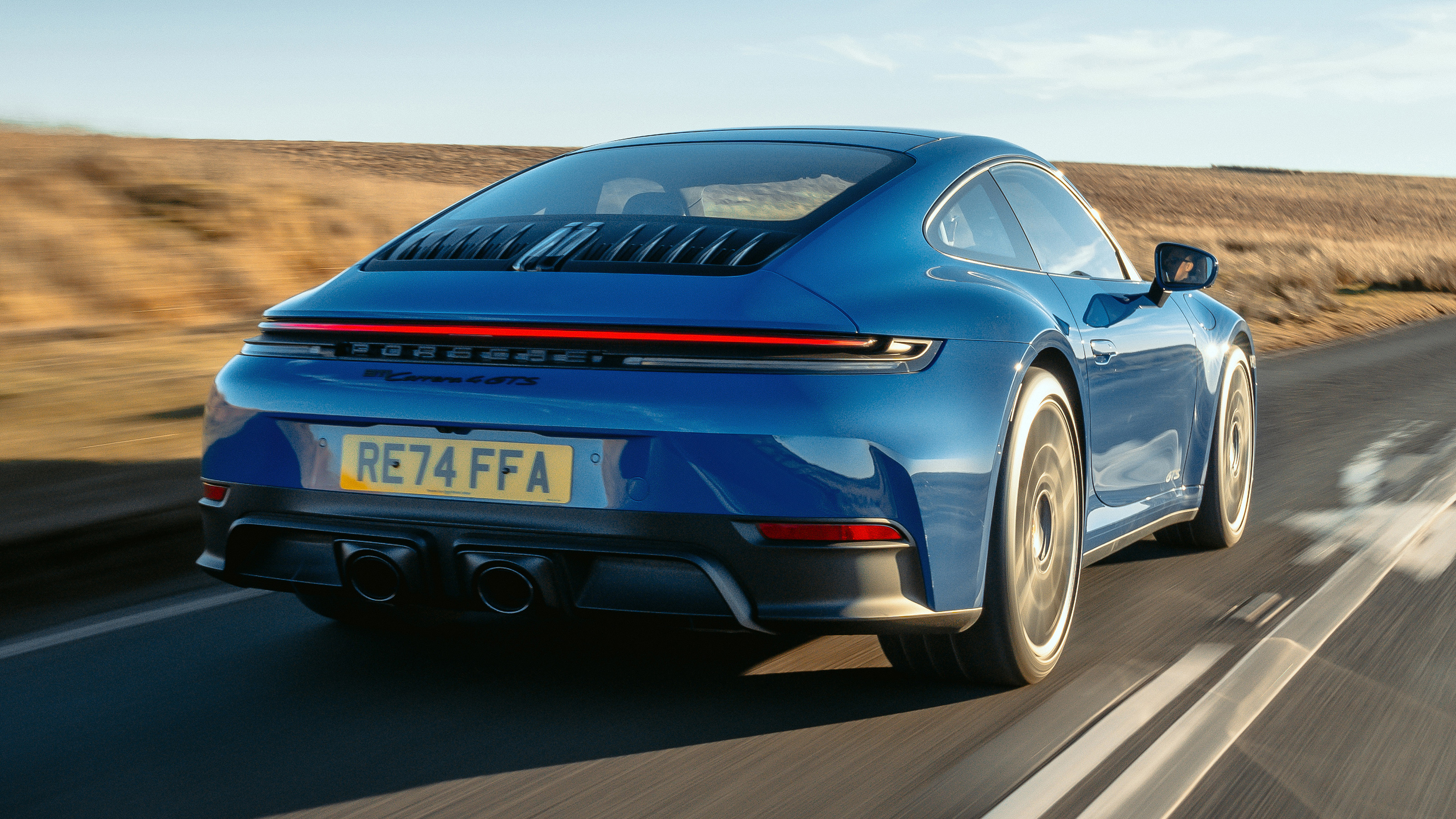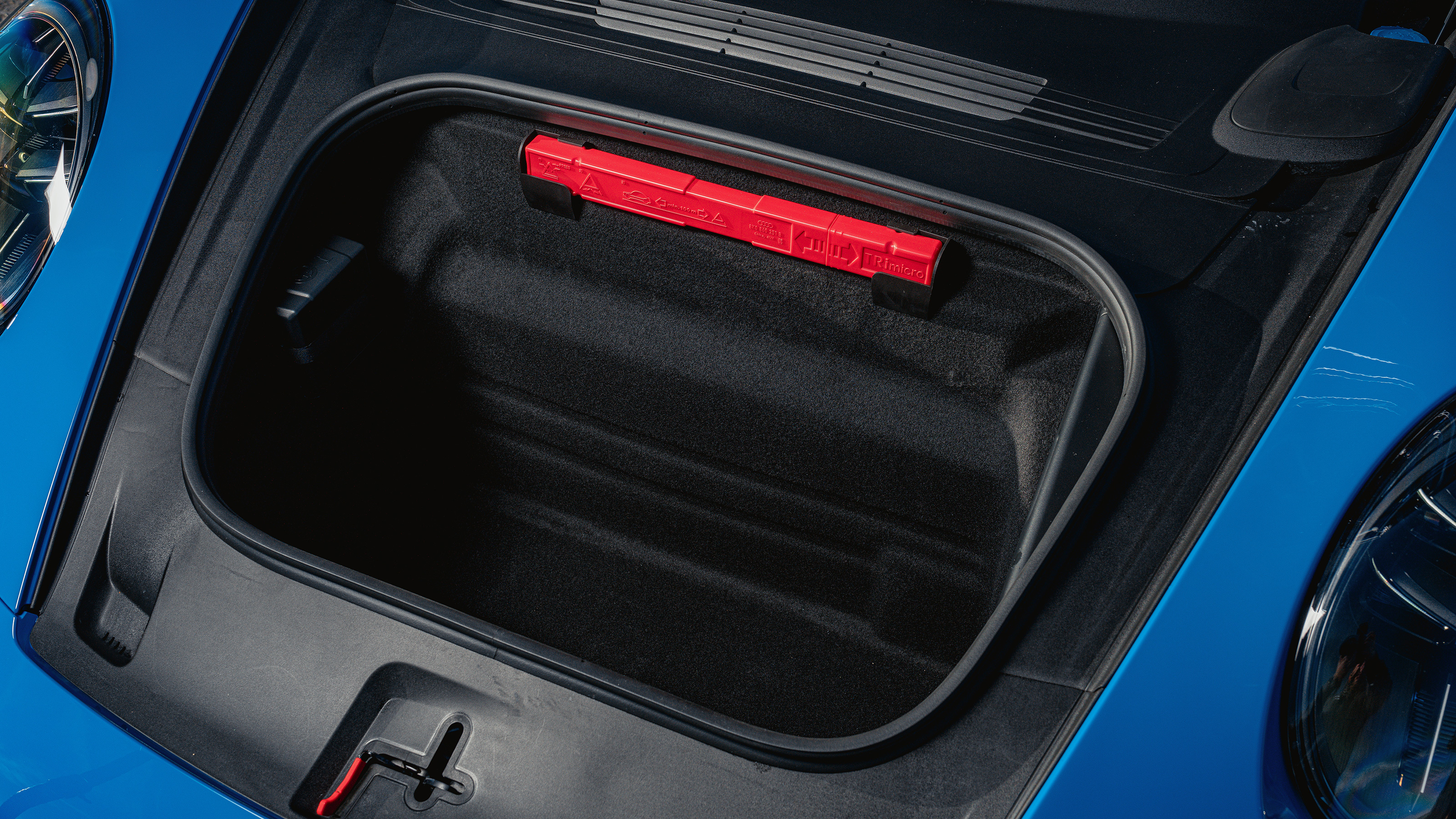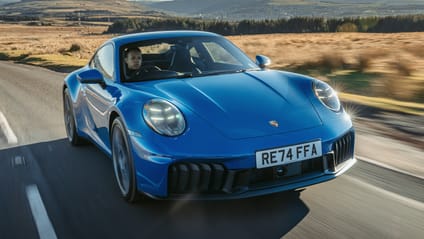
Good stuff
Hybrid adds wicked electric turbo noise and is ridiculously quick. Everything else stays as it should. Just
Bad stuff
Analogue rev counter has gone, push button start has arrived, GTS brakes slightly compromised by regen
Overview
What is it?
It’s the same, but different. It’s the Porsche 911 as we know and love it, but it’s facelift time for the 992 generation and more has changed than you might think. Heck, there’s now a hybrid Porsche 911 for the very first time.
Well, technically it’s the first road-going hybrid 911, because back in 2010 Porsche built the 911 GT3 R Hybrid; a prototype racecar that competed in the Nürburgring 24 Hours with a 480bhp 4.0-litre flat-six out back and a flywheel hybrid system where the passenger normally goes.
Does the new 911 Hybrid get a similar setup, then?
Not at all. So far you can only have the hybrid system if you go for the 992.2 911 GTS, and Porsche refers to it as a T-Hybrid (T for turbo). That’s because it pairs a newly developed 3.6-litre turbocharged flat-six with two electric motors, but one of those motors makes 14bhp and sits inside the single turbo to spool it up, while the other is a 54bhp unit integrated into the strengthened (and now eight-speed) PDK gearbox.
Both of those motors are fed by a super small 27kg, 1.9kWh (gross) battery that’s recharged using regenerative braking and exhaust gas flow in the turbocharger. You can’t plug it in and there’s no all-electric range. The electricity is there to add speed.
What does that mean for power figures in the GTS?
Porsche claims total outputs of 534bhp and 450lb ft of torque. The pre-facelift GTS made 473bhp from its 3.0-litre twin turbo engine, so this is a fairly hefty jump despite one of the turbos going missing. The GTS was generally a bit of a sweet spot in the middle of the 911 range though, so chucking in hybrid gubbins could be considered a bit of a risk for Porsche. Find out whether it’s paid off by clicking through to the Driving tab.
What about the standard Carrera?
The GTS T-Hybrid weighs in at £135,834, but provided you’re happy to make do with around 150bhp less – and save yourself the best part of £40,000 – the base Carrera is there for you in coupe and cabrio forms, or you can step up through the ranks of Carrera T and Carrera S. A quick recap: the T uses the base engine and gets added sporty/lightweighting bits, the S turns up the twin turbos by 90bhp.
The GTS is currently the only version available with 4WD or Targa bodywork but, as ever, Porsche will be drip-feeding this stuff into enthusiasts’ hungry mouths over the course of 2025. The same applies to the mighty Turbo versions (which will likely sport the same hybrid turbo tech as the GTS) and the recently seen GT3.
The base Carrera just sneaks under the £100,000 mark in the UK and still uses a 3.0-litre twin-turbo flat-six and a PDK gearbox. There’s no manual at the moment (although it’s standard in the Carrera T) and no hybrid assist here, but it does get the intercooler from the previous 911 Turbo and borrows its larger turbochargers from the 992.1 GTS that no longer needs them because of its single electric blower.
Power is up to 389bhp with torque at 332lb ft. They’re minimal increases but Porsche has improved efficiency, and it’ll still do 0-62mph in 4.1 seconds (or 3.9 seconds with the Sport Chrono package). Weight is up a smidge from 1,505kg to 1,520kg.
The looks haven’t changed much, have they?
Well, this is the 911. What did you expect? Porsche describes the new look as “dynamically streamlined”. It has managed to squeeze all of the lighting functions up front into the round LED units, so the front bumper is now much cleaner. There are fresh wheel designs, a new lightbar at the rear and a slightly redesigned tea tray rear grille with five fins on each side.
You’ll be able to spot a GTS by looking for the central exhaust and the little active aero shutters that flank the front number plate. Both Carrera and Carrera GTS can be specced with an optional ‘Aerokit’ that adds a sharper front splitter and a fixed rear wing. Avoid that though and you’ll have a very clean-looking rear-engined sports car.
But it isn’t just a car, is it?
The 992.2 does all the car-like stuff: the boot, the kid-carrying back seats (although be warned, they’re now a no-cost option so you’ll need to tick the box to have them fitted), the practical upright cabin, the glassy view out. Everything just… works. It has soothing daily manners; the ability to slip through traffic or to swallow motorways. That ability has improved with this facelift. Potentially at the cost of a wisp of mechanical interaction.
But unless you’ve lived under a rock, you’ll be aware of the 911s race-hardened reputation. That is mainly embodied by the GT3 models, but even mainstream 911s drive with a precision and agility seemingly denied to any of their rivals. The engine’s rasping song still just about cuts through whatever legislative requirements are attempting to strangle it, and there’s a deep satisfaction to the act of just operating the car. It’s one of those cars that you don’t need to be travelling fast in to deeply appreciate.
This mastery of both the prosaic and the thrilling is what made the 911 great. And so did its ability to evolve with the times. See an early one and this generation side by side, and look how instantly recognisable it is in both its profile and detailing. Yes, it’s got bigger and – chiefly – wider, but that’s how the world has moved.
The 992.2 is no wider than the pre-facelift car, but it is 44mm wider than the 991 and it’s reached the point where the 911 now feels bulky and has to be managed more closely when threading through towns or down B-roads. But still, at 1,852mm wide it’s narrower than just about any rival and you can see why it’s grown. More width means more grip, and space for bigger tyres. The 911 now clings on like a supercar.
Has the interior changed with the facelift?
Inside was a big step on from 991 to 992. It might contain a few visual recollections of cars past, but it is absolutely of the moment. The interfaces are all about reconfigurable screens, the equipment and driver-assist comprehensive. It’s beautifully made, simple in its lines, sophisticated in its appearance.
Two irritations though. The instrument binnacle has gone all-digital for the 992.2, losing the mechanical rev counter that stood front and centre. And we could cope with the twist lozenge to start the car as it moved like a key, but now it’s just a start button like every other car and is one of those little things that chisels away at the 911’s personality.
Our choice from the range

What's the verdict?
The Porsche 911 Carrera is speedier and grippier than ever before. Of course it is, that’s how progress is measured. The facelift cleans up the 992’s looks neatly, the twin-turbo flat-six has an energy and charisma few can match and the 911 is now even better balanced and neater in its handling.
Its daily-use and touring capacity has grown too, showing a comfort and a range of useful technologies that put it ahead of any rival. It’s as comfortable and usable as a super-saloon, but satisfies on many more levels. Among all this though, there’s the faint sense that a little more of the 911’s chuntering, mechanical personality has been eroded. Its handling is as smooth as its bodywork and for most buyers that can only be a good thing. Just remember to tick the box for rear seats.
And then there’s the new GTS with its T-Hybrid system. It’s an innovative setup that’s only been introduced to enhance performance. It’s a fantastic way of using electric power to overcome turbocharging’s lag and speaks volumes of Porsche commitment to engineering. Overall, the 911 remains the definitive sports car, stretching the poles of ability without putting a foot wrong.
The Rivals
Trending this week
- Top Gear Advice
Here are 19 brilliant cars that are cheaper than you think




